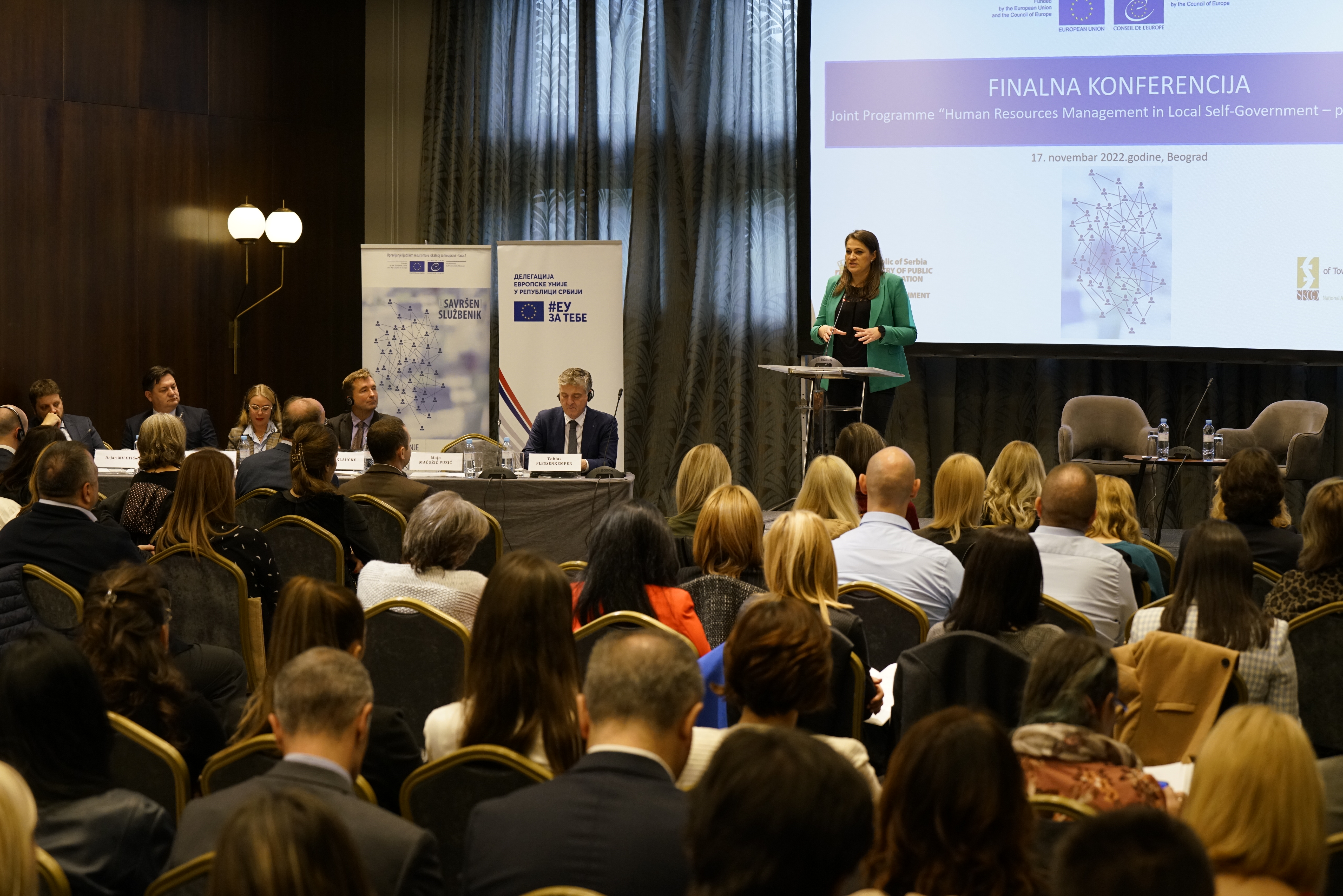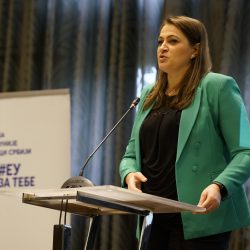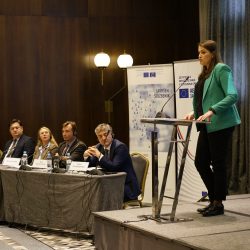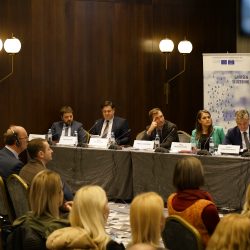
The State Secretary of the Ministry of Public Administration and Local Self-Government, Maja Mačužić Puzić, has made an address today, on behalf of the Minister Aleksandar Martinović, PhD, at the final conference of the project “Management of Human Resources in Local Self-Government – Phase 2”, which was jointly financed by the European Union and the Council of Europe, and implemented by the Council of Europe and the Ministry of Public Administration and Local Self-Government and the Standing Conference of Towns and Municipalities.
Pointing out that people are the key to all reform processes, Mačužić Puzić has stated that constant investment in human resources contributes to the comprehensive Public Administration Reform, as one of the priorities of the Government of the Republic of Serbia, and is also an essential prerequisite for accession to the European Union.
“Efficient public administration leads to better provision of services to citizens and the economy, reduction of corruption and greater trust of citizens in the administration, but it is not possible without qualified and competent civil servants at all levels of the government”, the State Secretary has emphasized, adding that the development of a modern civil service system requires a continuous strategic approach and that it should be based on the knowledge and skills of employees.
According to her, the Ministry, together with partners in this programme, had worked hard in order to improve human resources management and build its capacities for professional development of civil servants in all cities and municipalities in Serbia. As some of the results, Mačužić Puzić has mentioned the provision of equal access to the right to professional development and the uniform quality of professional development for all employees in the public administration and Local Self-government Units, as well as the development of new, modern general training programmes and, for the first time, of training programmes for managers.
She has stressed that, in this way, preconditions for the improvement of other elements in human resources management have been created, all with the aim of professional training of civil servants to adequately respond to the needs of citizens and the economy, which were and shall continue to be the main incentive and driving force behind the work and improvement of public administration.
“At a time when we are facing various challenges on a global level, the strengthening of the capacities of local self-governments is even more significant and shall continue to be one of our main priorities. The Government of the Republic of Serbia and the Ministry remain committed to establishing an administration that is capable of implementing the state’s goals and meeting the expectations of the citizens, i.e. to be an Administration tailored to all of us, all in accordance with the best European practices and standards,” the State Secretary has concluded.
In the introductory part of the conference, the participants were addressed by Tobias Flessenkemper, Head of the Council of Europe Office in Belgrade; Martin Klaucke, Head of Sector II Operations at the Delegation of the European Union to the Republic of Serbia; Alina Tatarenko, Head of the Democratic Governance Division of the Council of Europe; Dejan Miletić, director of the National Academy of Public Administration; and Nikola Tarbuk, Secretary General of the Standing Conference of Towns and Municipalities. The results of the project shall be presented at the conference, while assistant ministers Jasmina Benmansur and Ivana Savićević will participate in one of the panels.
The project was implemented during the last four years, and its worth amounts to EUR 4 million. Through the said project, and for the first time ever, a competence system for civil servants in Local Self-government Units was introduced, 50 cities and municipalities have received direct support in the development of the human resources management function, more than 2,000 employees have completed various trainings, and more than EUR 300,000 have been allocated through grants to projects of 33 local self-governments, thanks to which they improved the work of civil servants at the local level.
Photo gallery – source: Milena Arsenić Petrović






